
Takashi Saida Takashi Saida
Partner
Tokyo
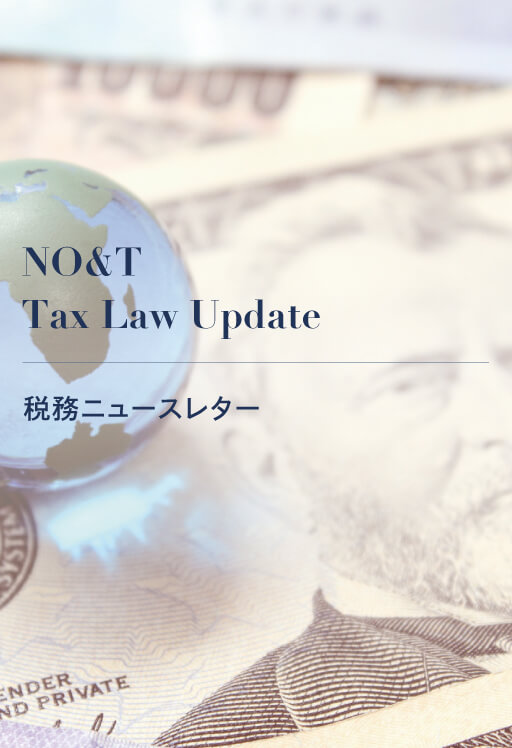
NO&T Tax Law Update
On February 2, 2024, the Cabinet of Japan submitted 2024 tax reform bills to the Japanese National Diet. The bills include the introduction of the taxation on platform operators, under which, certain platform operators are taxed with Japanese consumption tax (JCT) as if they were the providers of digital services provided from outside Japan through the platforms operated by them.
JCT is a value-added tax assessed on sellers or providers of basically all kinds of goods and services. Services provided from outside Japan were initially made not subject to JCT, but as the digital economy grew, digital services provided to Japanese consumers from outside Japan became non-negligible. In response, services provided to businesses or consumers in Japan through electric communication lines, typically the Internet (e-services), were made subject to JCT from October 2015. Examples of e-services are the provision of e-books, digital newspapers, music, videos, software and online games through the Internet.
However, nonresident providers of e-services are not necessarily complying with the obligations imposed on them relating to JCT (i.e., obligations to file tax returns and pay JCT on the sales of the services provided by them) and it was reported recently that the provider of a popular online game service had not been complying with the obligations and no JCT had been paid on the service charges received by them.
In response, the taxation on platform operators is to be introduced under the 2024 tax reform bills submitted to the Japanese National Diet on February 2, 2024.
Platform operators subject to the taxation are those designated as “specified platform operators” by the Commissioner of the National Tax Agency of Japan. A platform operator is designated as a “specified platform operator” if the total amount of consideration for e-services provided in Japan (including e-services provided to consumers in Japan) by nonresident providers through the platform operated by it exceeds JPY 5 billion in its fiscal year (or exceeds JPY 5 billion on an annualized basis if its fiscal year is shorter than a year). A platform operator which has come to meet the condition for the designation in its fiscal year is obligated to submit a report to the relevant local tax office by the due date of filing JCT tax returns for such fiscal year.
Once a platform operator is designated as a “specified platform operator,” it is announced publicly by the Commissioner of the National Tax Agency of Japan. The designated platform operator is also obligated to individually notify nonresident service providers providing e-services through the platform operated by it. The designation takes effect from the first day of the calendar month immediately following the semi-anniversary date of the due date of the report to be submitted to the relevant tax office by the platform operator.
A platform operator is deemed as the provider of e-services provided by nonresidents through the platform operated by it for the purpose of JCT from the date its designation as a “specified platform operator” takes effect, i.e., it owes JCT liabilities with respect to the sales of such e-services from such date, for which, it shall file tax returns to the relevant tax office while the nonresident service providers are released from their respective JCT tax liabilities with respect to the sale of such e-services from such date.
An exception to the platform operators’ JCT liabilities exists with respect to e-services specifically targeted to businesses. As the reverse charge rules apply to e-services of the nature or of the terms and conditions that limit the recipients of the e-services to businesses, a platform operator designated as a “specified platform operator” owes no JCT liabilities with respect to such e-services.
Although there is no provision in the statute (as amended by the reform bills) regarding the collection of JCT by a platform operator designated as a “specified platform operator,” it is contemplated that the amount of JCT applicable to the sale of e-services for which the platform operator owes JCT liabilities will be collected by it from the amount of consideration paid by the recipient of the e-services in the course of the transaction among the platform operator and the provider and the recipient of the e-services.
Assuming the 2024 tax reform bills will be passed by the Japanese National Diet, a platform operator can owe JCT liabilities under the new taxation from April 1, 2025.
A platform operator is obligated to submit a report of its meeting the condition for the designation as a “specified platform operator” by September 30, 2024 if the total amount of consideration for e-services provided in Japan (including e-services provided to consumers in Japan) by nonresident providers through the platform operated by it exceeds JPY 5 billion in its fiscal year including April 1, 2024 (or if such fiscal year ends on or after August 1, 2024, the fiscal year immediately preceding such fiscal year) (or exceeds JPY 5 billion on an annualized basis if the fiscal year is shorter than a year).
It is contemplated that those platform operators submitting such reports by September 30, 2024 will be designated as “specified platform operators” by December 31, 2024 and the designation will take effect from April 1, 2025 uniformly.
As major platform operators will surely be designated as “specified platform operators” by December 31, 2024, such platform operators and the nonresident providers of e-services providing e-services through the platforms operated by such platform operators will have to sort out the mechanism to let such platform operators to calculate and collect the amount of JCT applicable to the sale of e-services for which the platform operators will owe JCT liabilities so that the platform operators can perform their obligations to file JCT tax returns and pay such amount of JCT under the new taxation.
This newsletter is given as general information for reference purposes only and therefore does not constitute our firm’s legal advice. Any opinion stated in this newsletter is a personal view of the author(s) and not our firm’s official view. For any specific matter or legal issue, please do not rely on this newsletter but make sure to consult a legal adviser. We would be delighted to answer your questions, if any.


(May 2025)
Takashi Saida
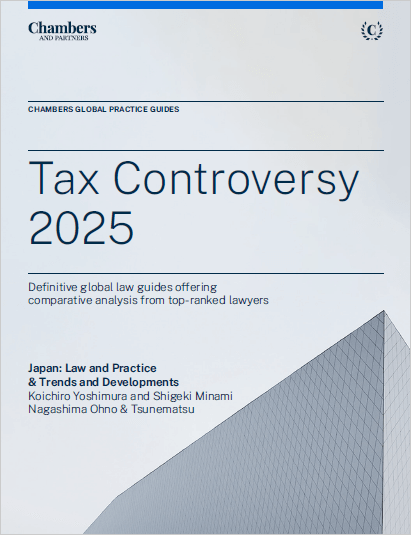

(May 2025)
Koichiro Yoshimura


(May 2025)
Shigeki Minami


(May 2025)
Shigeki Minami (Panel Discussion)


(May 2025)
Takashi Saida


(May 2025)
Koichiro Yoshimura


(May 2025)
Shigeki Minami


(May 2025)
Shigeki Minami (Panel Discussion)


(June 2025)
Keiji Tonomura, Yukiko Konno, Minh Thi Cao Koike, Yoshiteru Matsuzaki (Co-author), Masahiro Kondo (Contributor)


(April 2025)
Keiji Tonomura, Akira Komatsu (Co-author)


(April 2025)
Keiji Tonomura, Shu Sasaki, Kazuyuki Ohno, Otoki Shimizu (Co-author)


Poonyisa Sornchangwat, Kwanchanok Jantakram (Co-author)
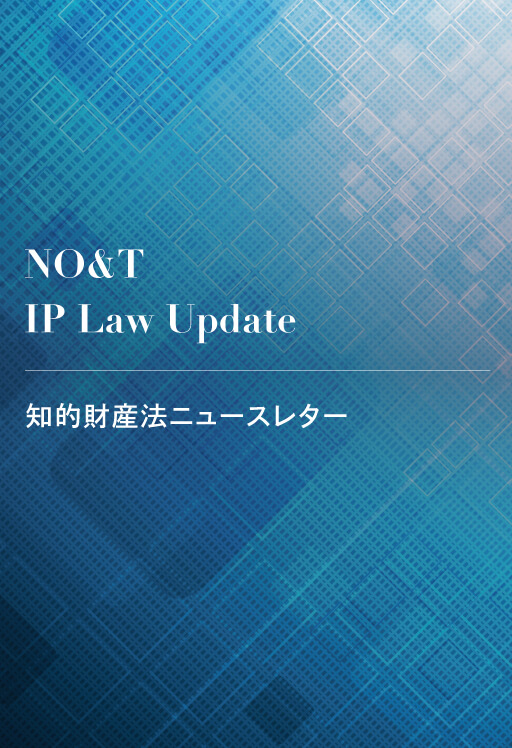

Kenji Tosaki, Takahiro Hatori, Nozomi Kato (Co-author)


Salin Kongpakpaisarn, Pundaree Tanapathong (Co-author)
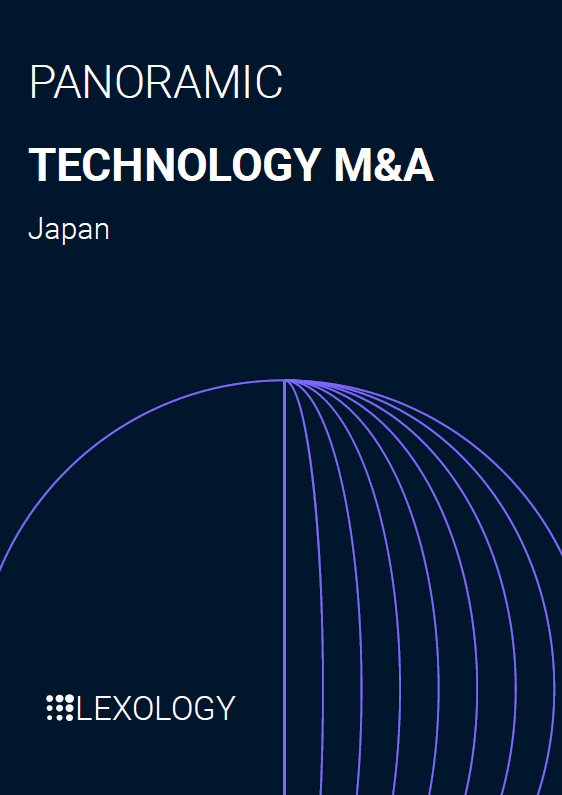

(November 2024)
Keiji Tonomura, Masaki Mizukoshi, Uchu Takehara, Hitomi Kono (Co-author)


(October 2024)
Yasushi Kudo, Tsubasa Watanabe, Hayato Maruta (Co-author)


(April 2025)
Keiji Tonomura, Akira Komatsu (Co-author)


Poonyisa Sornchangwat, Kwanchanok Jantakram (Co-author)


Kenji Tosaki, Takahiro Hatori, Nozomi Kato (Co-author)
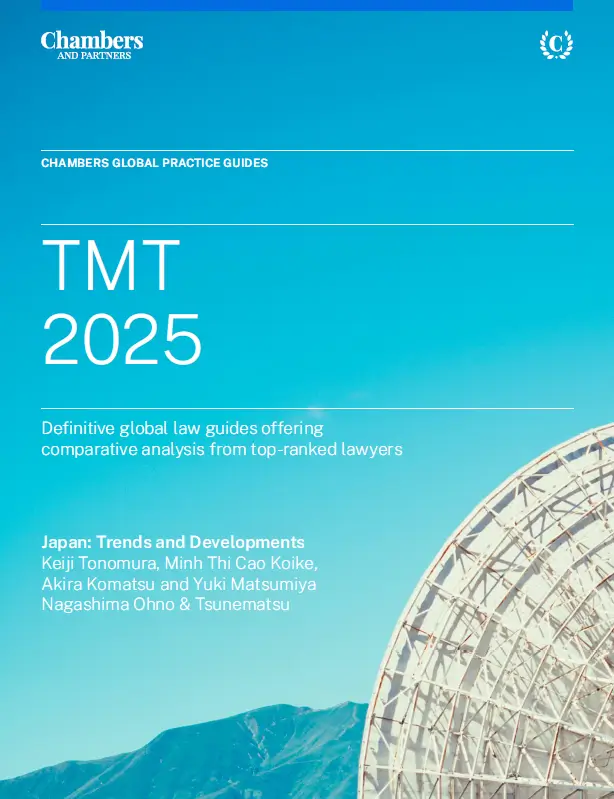

(February 2025)
Keiji Tonomura, Minh Thi Cao Koike, Akira Komatsu, Yuki Matsumiya (Co-author)